Period poverty
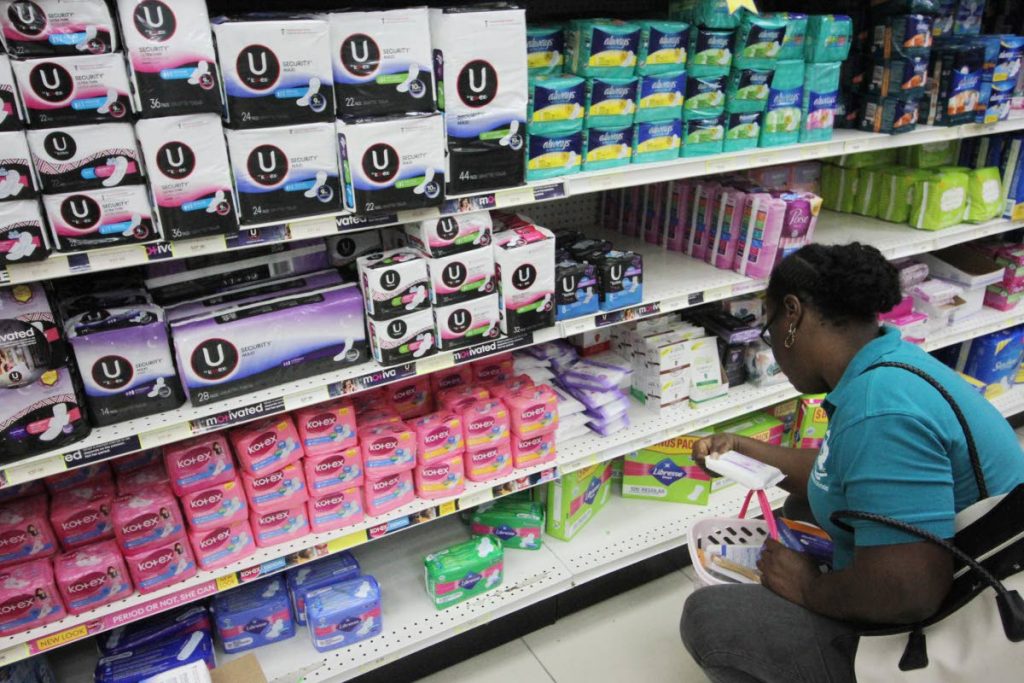
CARLENE BOYD* called a male friend one day asking for help to get sanitary pads. She had been in dire financial straits for months, barely making ends meet even to buy food. She was just days away from payday – and her period came. She had no money for food, much less pads. She felt she could trust him.
But his response was stinging: “You supposed to have them things.’”
He did not get the pads for her. She remembered she had some small change and scraped together the cash to buy them. She was $1 short, but the female shopkeeper gave her the pads anyway.
During every menstrual cycle, many women and girls experience this and worse. According to a 2019 article on the International Federation of Gynaecology and Obstetrics website, up to 500 million girls and women are living in “period poverty” each month. The website uk.lunette.uk defines period poverty as “having a lack of access to sanitary products due to financial constraints.”
The world is engaged in global discussion about period poverty. A May CBS online article said the average woman spends 2,535 days of her life menstruating, and while for many it is merely an inconvenience, “perhaps accompanied by a slew of uncomfortable symptoms like PMS, bloating and cramps,” for others it is a bigger problem.
“American women are 38 per cent more likely to live in poverty than men. And if you only have US$5 in your pocket when your period arrives, you may have to choose between buying tampons and eating – or worse, between buying tampons and feeding your kids.”
In TT, the discussion gained momentum when it was reported that local-born cricketer Dwayne Bravo met recently with India’s Arunachalam Muruganantham, known as “Padman.” Muruganantham is a social entrepreneur from Coimbatore, India, whose invention of a low-cost sanitary-pad-making machine helped bring cheap sanitary pads to rural India. Bravo, the Hindu.com article said, met with Muruganantham to “take the message of menstrual hygiene” to TT. Bravo told Newsday, when contacted, that he would say more on the issue when he is ready.
In TT there was a previous attempt to cut the cost feminine napkins and tampons. In the 2001 budget, finance minister Gerald Yetming announced he was removing VAT (value added tax) on them among other products to help increase the disposable income of taxpayers. Under the Value Added Tax Order of 2016 sanitary towels and tampons are still tax-exempt.
However, the monthly cost is still too heavy to bear for some.
Newsday visited a popular cosmetic and health care store and a grocery to compare the prices of sanitary napkins. The cheapest pack of pads, a ten-pack with wings, cost $7.95. The costs of pads vary based on use (regular/overnight), size of the pack and whether they have wings (to reduce leakage) or not. The most expensive, a 32-pack of ultra-thin super pads, cost $33.95.
Tampons also varied according to use and quantity. A box of ten super tampons cost $18.95 while an 18- pack of “gentle glide” cost $25.95 and the most expensive box cost $30.95.
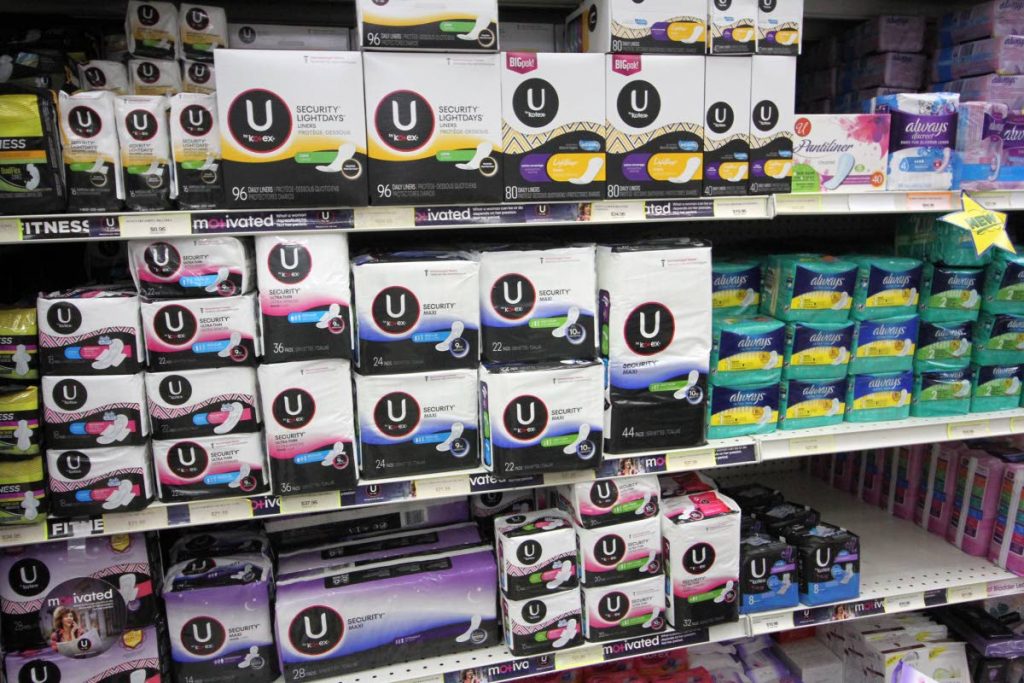
Many members of Newsday’s social media community agree they should be made more affordable or free. When Newsday reached out online for feedback, 92 per cent on Twitter said yes. Facebook comments overwhelmingly agreed that sanitary protection should be made more available or free. Some comments were: “more affordable and free for the less fortunate”; “Yes especially ladies with PCOS (polycsystic ovarian syndrome) since due to the condition it causes us to have to constantly wear sanitary napkins and it is so so expensive”; and “it should be free.”
There were various opinions on cost. Some (both male and female) felt the change should apply in schools; some felt it should be free across the board; and others felt it should be free for the less well-off.
A minority felt sanitary protection should not be made free or more affordable at all.
One commenter said: “Nope. Instead of buying expensive phones, weaves, clothes, makeup, eating KFC every day...buy your sanitary pads. As a young lady your monthly period is not a surprise to you. U buy mouthwash, toothpaste, soap, feminine wash, deodorant (sic). Its part of your hygiene (sic) as a woman. How much cheaper you want it? Or u want it free? Steupps.”
Dr Shevon Joseph, a gynaecologist and obstetrician who runs a women’s health care centre in Woodbrook, was very aware of the ongoing issue of period poverty even in the world’s wealthiest nations. She said there is data which shows period poverty affects women and girls in rural areas and inner cities, and the affected women are usually of a lower socio-economic bracket.
“The average age of menarche (the first occurrence of menstruation) is anywhere from eight to ten. Menopause goes up to an average age 51, some women, 55; even 58-year-olds may be getting regular periods...that is 50 years of needing to use sanitary napkins. Every month without fail, the average woman would need a product of some kind.
“It is a naturally occurring process that we women get penalised for on a regular basis.
“It can be made more affordable,” she said in a phone interview.
“Instead of considering sanitary napkins to be a non-essential luxury item – which is what most governments refer to it as – it should be considered essential and non-luxury, because you need them. You have no choice.”
Joseph believes the price of sanitary products should be regulated and companies, stores and pharmacies should have to maintain sanitary napkins and tampons within a certain price range.
“And the price cannot be increased simply for profit.”
Joseph believes if these simple measures are implemented, “We can start improving the issue of period poverty.”
She also believes the issue goes unnoticed, as many women and girls are too embarrassed to say they cannot afford sanitary napkins. Instead, she said, they would skip work or school.
“They would also have the risk of poor sanitation, where they turn to alternative options if they cannot afford their pads – meaning they turn to paper tissue or cloth items, which may not provide the same sanitation necessary.”
A related issue, Joseph said, was access to running water.
“If I don’t have running water and I don’t have access to sanitation, then I may not be able to maintain half of the hygiene.”
She added that, again, women might not go to school or work as a result.
With her clients, Joseph tries to encourage the concept of reusable products, which, she added, are having a resurgence both locally and internationally: there was a grassroots movement which encourages the use of reusable and sustainable period products.
“Culturally, I think it is a little bit of a learning curve, where we have been trained that liners and plastic pads are the go-to. But you have reusable products that are safer in many instances, and also environmentally friendly.”
Menstrual cups and charcoal-treated cloth pads that are washable and reusable are some of the alternatives. A menstrual cup, WebMD says, is a flexible cup made of silicone or latex rubber which, instead of absorbing the flow, like a tampon or pad, the cup catches and collects it.
“Period poverty would be less of an issue if a woman or girl had a reusable product that she could rely on, last her a lot longer and cost less in the long run,” Joseph said. Menstrual cups are available in TT through small businesses such as Menstrual Cup TT.
As for free dispensers in school bathrooms for girls, Joseph believes they are necessary and would relieve the burden on schoolchildren and parents. She said this was the case in Ireland and was also done in that country’s public bathrooms.
In TT, she sees school as a good place to start, as that would take care of the core sector of women who may suffer the most from period poverty.
Education on reusable products, she said, would also be beneficial, and to fight stigma against menstruation, public education was essential, she added.
“Certain cultural aspects...the way that women are introduced to their bodies from a young age can definitely take some adjustment.”
She added there were women who were grown and have children but still unable to accept certain aspects of their bodies.
“I feel what needs to happen is a campaign where it is okay to talk about it and teach it to daughters that it is okay to acknowledge it and discuss things openly.”
Thanks to social media and more access to information, she said she was “confident and hopeful” that the younger generations would have a better understanding of their bodies than previous generations and feel more comfortable discussing them openly. There would be less of a taboo surrounding discussing a period with a boyfriend or a husband or father.
“Some men are trained to not even hear the word ‘period,’ as it is ‘gross’ and ‘unsightly.’ It is something that should be considered a thing of the past eventually,” Joseph said.
Folade Mutota, executive director of the Women’s Institute for Alternative Development (WINAD), feels any discussion about period poverty must be part of the wider development-agenda discussion. While TT has vision 2030, it does not “engage with the issue of gender equality, at all,” she said.
“Even if you introduce more affordable or free sanitary napkins to women or girls, there is really no political will behind something like that, that links that political action of providing the sanitary napkins and so on with gender equality,” she added.
She said if TT’s leaders do not understand a call for more affordable access to sanitary napkins in the context of gender equality, “How does that, for example, protect or advance the rights of women and girls?”
If the conversation is not encouraged in that way in the first place, Mutota said, the issue can become “very messy.”
She said when the news broke about what Bravo wanted to do, the comments showed a lot of uninformed responses.
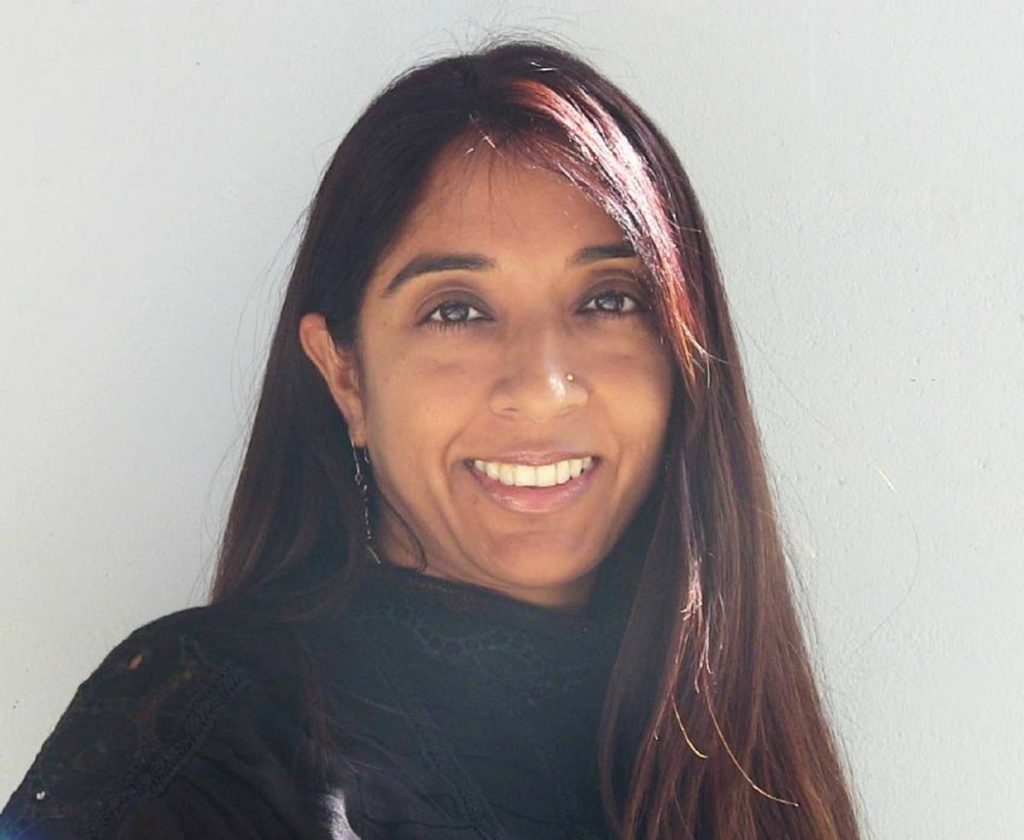
Dr Gabrielle Hosein, head of the University of the West Indies’ (UWI) Institute for Gender and Development Studies, St Augustine, said while subsidising the cost of pads and tampons is just one consideration in the matter of period poverty, the effects that menstrual cycles have on women’s working lives also need to be considered. She said some countries offer menstrual leave, including paid menstrual leave.
Hosein said addressing period poverty also takes into account that “biologically there are greater costs to women to function and live in the society but those costs are borne by women alone.”
But the benefits of menstruation, she said, were enjoyed by the entire society because women are responsible for childbearing, and this was something society needed to factor in.
“These are recurring costs for poor women and girls. We have been increasingly recognising that what this means is that women, just in their daily lives and to function, carry much higher costs, which also carries social benefits.
“And so there is a way that recognising that women’s biology are part of what should be taken into account in terms of social care,” she said.
Hosein too said the issue was one of gender equity.
She added society needed women to menstruate in order to reproduce. “Therefore we are asking them to carry a burden alone that nonetheless has important connections with the wider population and the wider reproduction of the stake in the future.”
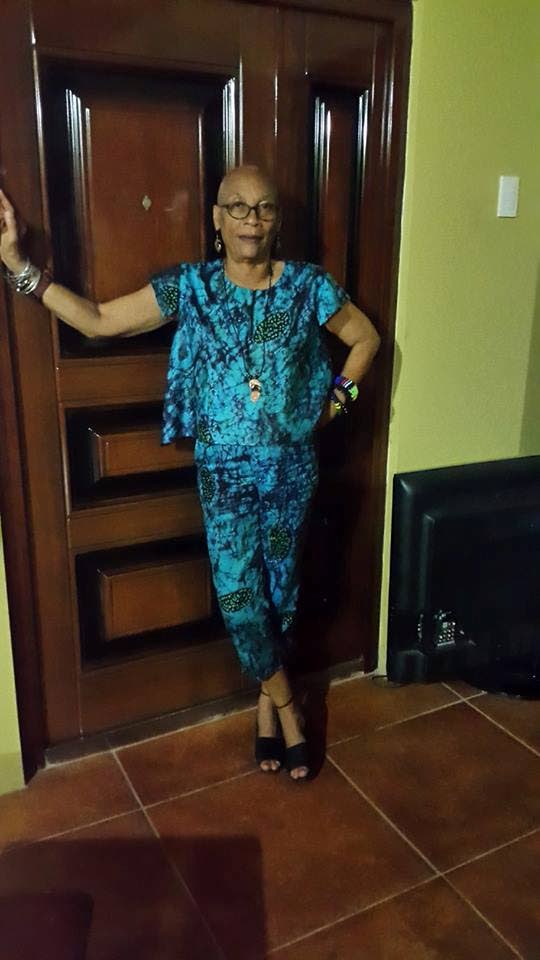
Jacqueline Burgess, convenor of the NGO Women Working for Social Progress, says she would say that pads and tampons are not affordable: some women can afford them but there were also some women and girls, particularly in rural communities, who could not. She felt concessions can be made for certain categories. Burgess also suggested that schools be given donations of sanitary napkins and tampons.
“There might be some people who come during school time whose periods might come and they are not prepared...so I think schools are some areas some allocations can be given to.”
Burgess said Bravo’s initiative was a good one and believes it should be supported by Government.
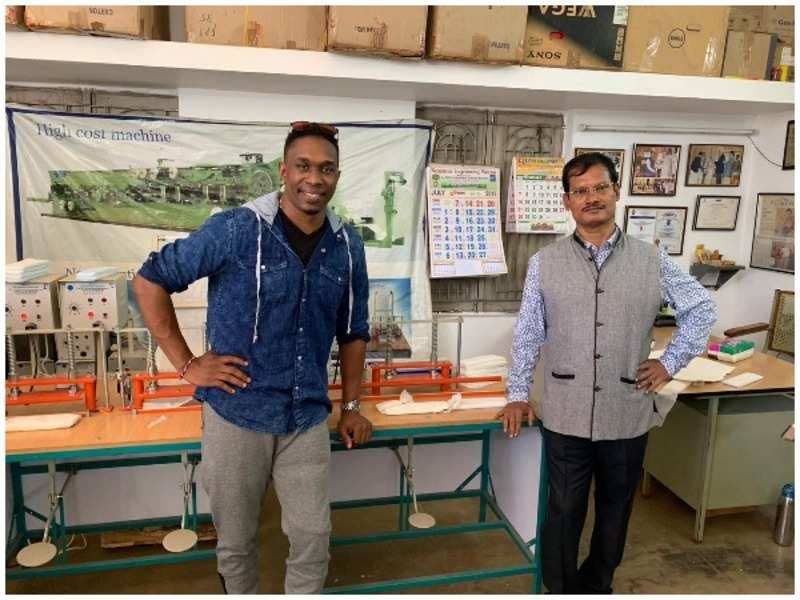
She added she hoped the initiative would not only be concentrated in urban areas and would reach out to more rural areas where there is much more need for it.
Burgess also agreed that discussion around the issue should fall within the gender equity framework.
“Men don’t see periods, so they do not have the kind of shame, the kind of burden of having a period every month, or the religious stigma that is put toward women who are having their periods...we should be discussing it in that kind of context,” Burgess said.
*Not her real name


Comments
"Period poverty"